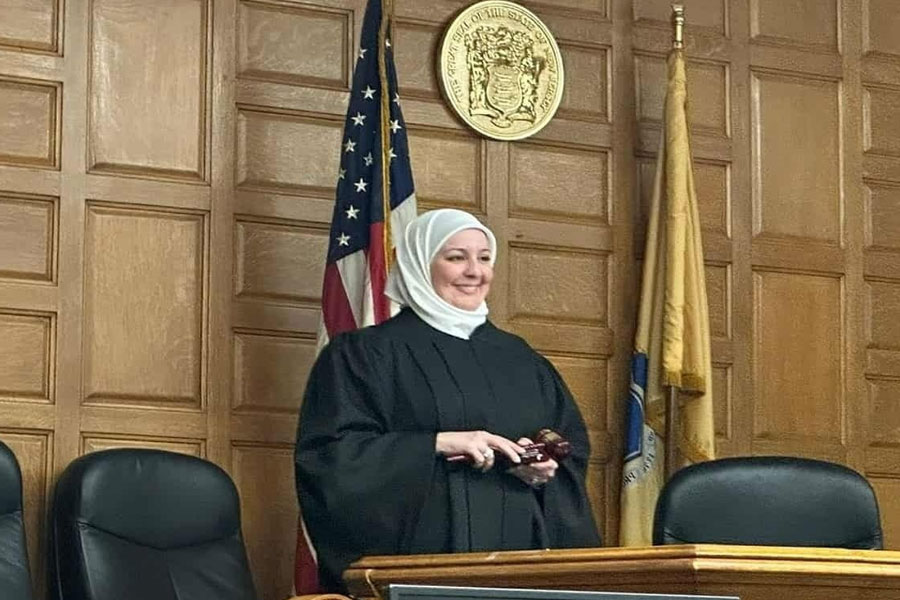In a historic move, Attorney Nadia Kahf has become the first judge in the United States to wear a head covering in U.S Superior Court.
Kahf, who hails from Wayne and has Syrian heritage, specializes in family law and immigration and has been assigned to the superior court in New Jersey.
Governor Phil Murphy nominated Kahf for the position over a year ago, and she was officially sworn in while holding a copy of the Qur’an. She will be operating as a Passaic County Superior Court judge, as reported by local media.
While Kahf is not the first Muslim woman to serve as a state judge, she is the first to do so while wearing a hijab. She has been an active member of the New Jersey chapter of the Council on American-Islamic Relations (CAIR) for almost two decades and now serves as the organization’s chairwoman.
Pakistan’s Sabahat Rizvi Creates History as First Woman Secretary of LHCBA in 130 Years
Additionally, Kahf works as legal counsel for Wafa House, a nonprofit organization in Clifton that provides domestic abuse and social assistance. She also serves as the chairperson of the Passaic County Islamic Center.
Kahf’s achievement as a headscarf-wearing judge is a significant milestone for Muslim women in the US and emphasizes the importance of diversity and representation in the country’s judicial system.
Importance of Muslim Women like Nadia Kahf in U.S Superior Court & Other Legal Systems
Having more Muslim women in the legal system is crucial for several reasons. First and foremost, it promotes diversity and representation in the legal field.
When individuals from different backgrounds, cultures, and religions are represented, it ensures that different perspectives are taken into account when making legal decisions, which can result in more equitable and just outcomes.
Furthermore, Muslim women bring a unique perspective to the legal system. As members of a marginalized community, they understand the challenges faced by those who may not have the same access to legal resources and support.
This understanding can lead to more effective advocacy for marginalized individuals and communities.
In addition, having more Muslim women in the legal system can also help break down stereotypes and prejudices. Muslim women have been subject to stereotypes and discrimination in the US, and having more representation in the legal field can help dispel myths and misconceptions about the Muslim community.
Dr Ammara Farooq Creates History as First Pakistani to Chair Asia Pacific Board of GAIL
Finally, having more Muslim women in the legal system can also serve as a source of inspiration for young girls and women who may be interested in pursuing careers in law.
Seeing someone who looks like them and shares their faith and cultural background can encourage them to pursue their dreams and aspirations.
Overall, having more Muslim women in the legal system is important for promoting diversity and representation, advocating for marginalized communities, breaking down stereotypes, and inspiring future generations of women to pursue careers in law.
Kudos to trailblazer Attorney Kahf for this marvellous and historic achievement.
